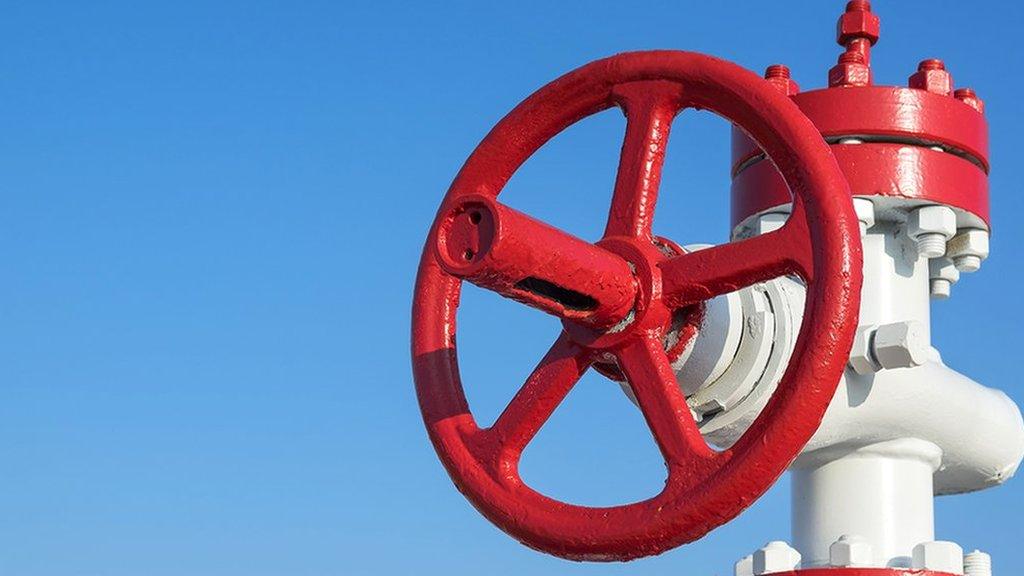France sends Germany gas for first time amid Russia energy crisis
- Published
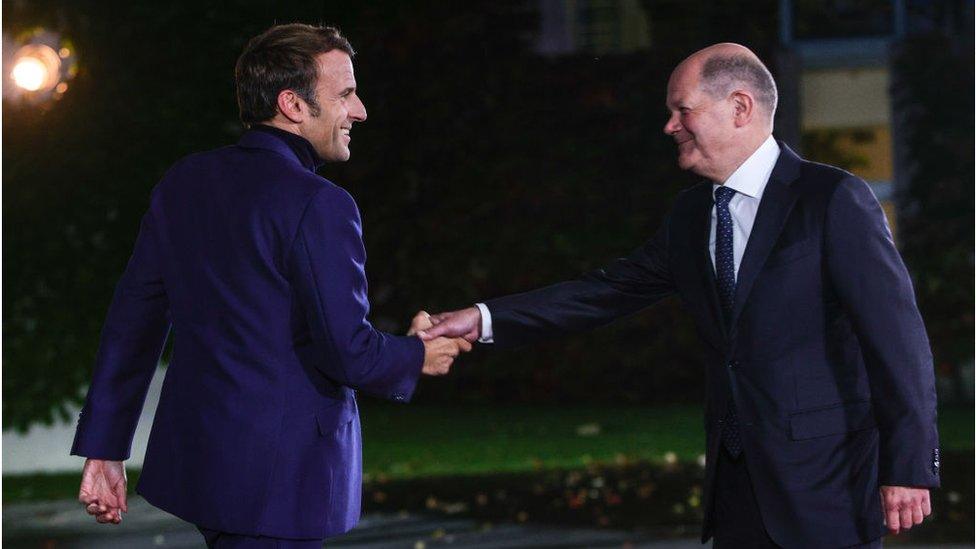
The neighbouring countries struck up a deal to help one other shoulder the burden of the energy crisis that has hit Europe
France has sent gas to Germany for the first time in "European solidarity" amid increasing energy pressures.
The gas, delivered via a pipeline, is part of a deal between the countries to ease energy shortfalls after Russian turned off the taps to Europe.
Though the new flow is less than 2% of Germany's daily needs, it is welcome as Berlin battles to diversify its energy.
Russia has been accused of using gas supplies as a weapon against the West since the invasion of Ukraine.
French grid operator, GRTgaz, said it would initially deliver 31 gigawatt hours (GWh) per day, via a pipeline from the French border village of Obergailbach.
The maximum daily capacity of the new gas flow is 100 GWh, it added in a statement.
Last month, in the energy solidarity deal, Germany pledged to provide additional electricity to France when needed, and in exchange France agreed to help Germany with gas supplies.
"If we did not have European solidarity and an integrated, united market right now, we would have serious problems," said French President Emmanuel Macron on Wednesday.
France is less affected by Russia turning off the gas taps because most of its energy needs are fulfilled by Norway and through liquified natural gas supplies.
Russia's invasion of Ukraine in February led to gas price hikes, and EU customers face record tariffs this winter.
Until then Germany relied on Russia for 55% of its gas. It has reduced this to 35% and wants eventually to reduce imports to zero.
Germany is also increasing its use of coal and extending the life of power stations which were due to shut - despite the negative environmental impact.
The former German chancellor, Angela Merkel, said she did not regret relying on Russia as a major gas supplier during her 16 years in government.
The German government hopes to reduce gas usage by 2% by limiting the use of lighting and heating in public buildings this winter.
Russian President Vladimir Putin said on Wednesday the gas taps could still be turned on to Europe and that "the ball, as they say, is now in European Union's court".
"We do not limit anyone in anything," he said, adding that Moscow was ready to supply additional volumes of gas in the autumn-winter period.
But despite Mr Putin's words, a resumption of gas supplies to Europe seems unlikely.
Nord Stream 1, Russia's largest gas pipeline to Europe, was closed indefinitely in August for technical reasons, and a number of leaks were then discovered in September.
The Nord Stream 2 project, which had been due to come on stream this year, was denied an operating licence by Germany because of the invasion. Leaks have been found in this pipeline as well.
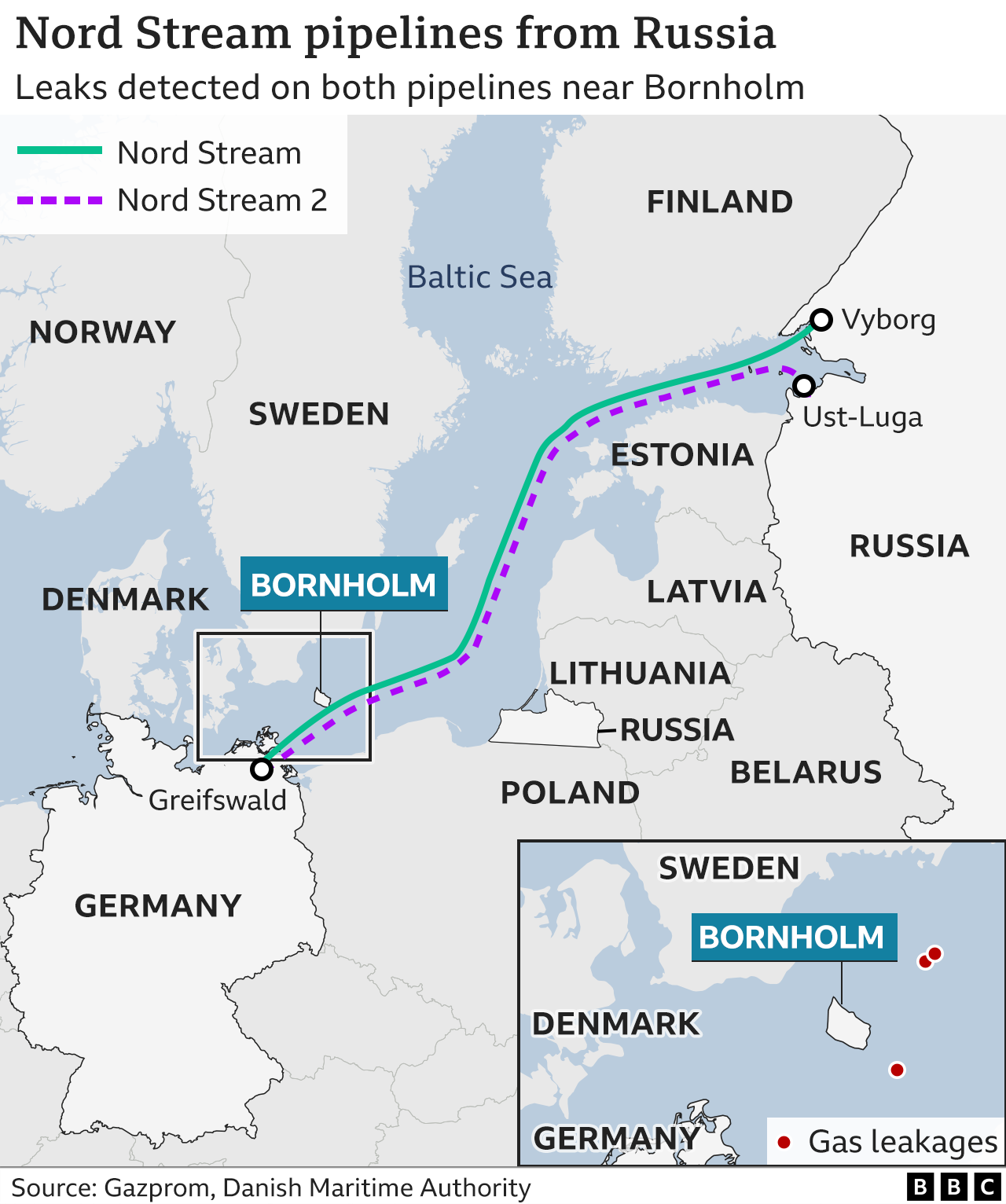
Related topics
- Published12 October 2022
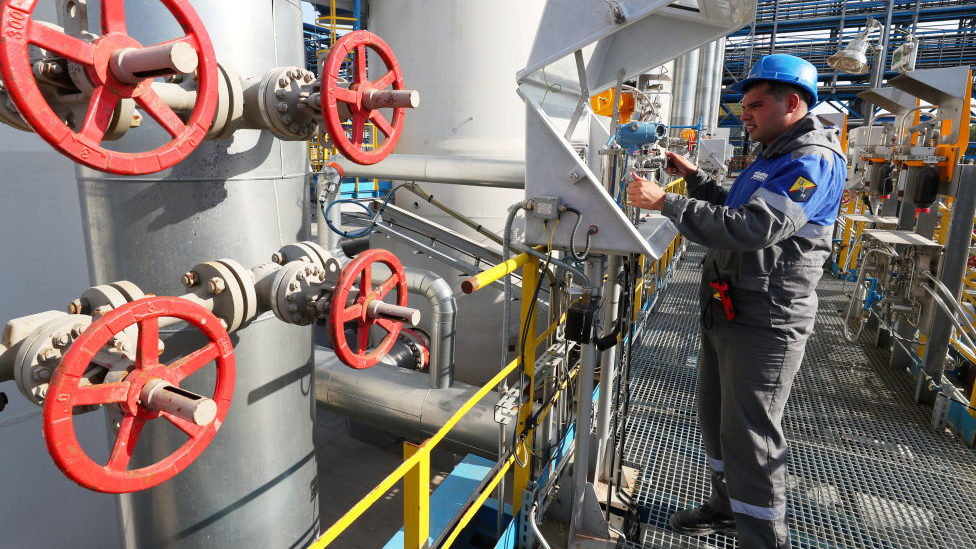
- Published29 September 2022
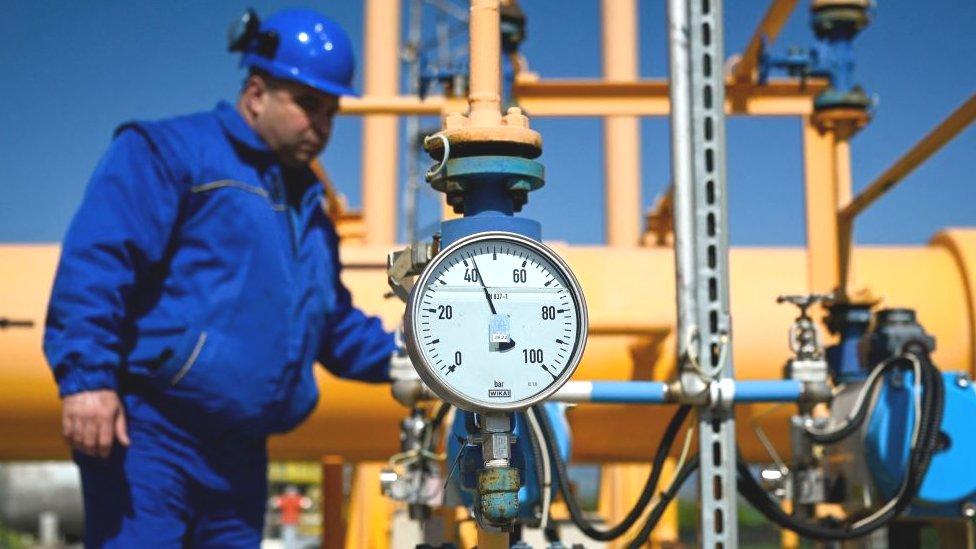
- Published26 January 2023
